#ausssie
Explore tagged Tumblr posts
Text




Rough day? Feeling down?
I present my pup's first snow (and by snow I mean a dusting of snow in the high elevations of the city, but come on this is snow in Vegas.)
#Mable#Pup#Puppy's first snow#black tri aussie#australian shepherd#ausssie#Yes it snows in Vegas#Happy Puppy#She kept trying to eat the snow
2 notes
·
View notes
Text
If I had a nickel every time Lando was 2nd to an Australian in a Mclaren 1-2 I’d have two nickels.
#f1#Nicole shut up#hungarian gp 2024#just in case it wasn’t clear I’m in favour of the aussies#AUSSIE AUSSIE AUSSSIE 🇦🇺🇦🇺
4 notes
·
View notes
Text



My illustration for the Ma Bulle contest by @arttoplay (I invite you to vote for my drawing by liking the post on their page too 🙏). . This illustration will also be the October print for my Patreon subscribers (you can register until October 1st) and will be available as a limited edition poster at the Art To Play convention in November ✨ . Materials : Watercolors, Poster Color and color pencil on watercolor paper
.
Alice's dream ✨ / Le rêve d'Alice ✨ - Mon illustration pour le concours Ma Bulle d'@arttoplay (je vous invite à aller voter pour mon dessin en likant la publication sur leur page aussi 🙏). . Cette illustration sera ausssi le print du mois d'octobre pour mes abonnés Patreon (inscriptions ouvertes jusqu'au 1er octobre). Elle sera aussi disponible sous format poster en quantité très limitée à la convention Art To Play en novembre ✨
80 notes
·
View notes
Note
Delcan I'm disappointed ur life wasn't in danger but here *gives amo but only after ausssie leaves*
“Uh my life was in danger, fuck you.”
#declan fitzpatrick south park#for the last time i’m not a fucking leprechaun#south park oc#south park#south park original character#oc stuff#ocs#the cooler south park foreign kids#oc#oc rp#rp
4 notes
·
View notes
Note
Wait you’re Australian 😧
IM AN AUSSSIE TOO!!!!!!!
OH MY GOD AUSSIES UNITE??????? HIIIIII!!!!!!!! VERY HAPPY TO SEE AUSSIE MUTUAL OMG OMG??? 🙏🙏🙏🙏
5 notes
·
View notes
Text
My Bizarre Roommate Crystal Gems Information with Gender, Race, and Heights

Lapis Lazuli - Samoan, Trans Girl(MtF basically Amab), 6'4. Her pronouns are simply She/Her but doesn't mind being called they/them. Has undiagnosed Autism, depression, PTSD, C-PTSD, and possibly BPD. She does have a physical disability though it was from a school shooting she suffered while in high school, after being shot in the head and forcibly out in a coma for a few months, the vision in her left eye is very spotty. Basically, she's somewhat blind in one eye. She does unfortunately do Self Harm whenever she gets a really bad mental episode. At the start of "My Bizarre Roommate" her age is 27.
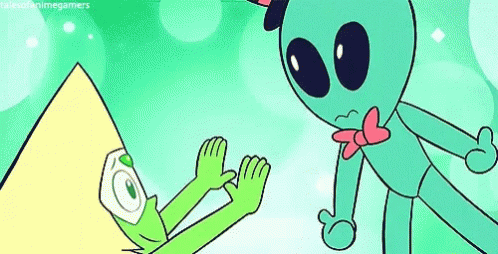
Peridot - Wasian(Japanese and German), Non Binary, and 4'11(her growth was somewhat stunted as she was a premature baby). Her pronouns are she/her, they/them, and xe/xem. Was diagnosed with Autism at a rather young age, has physical disabilities with her left arm and right leg, high anxiety, and also has bits of ADHD. The left arm and right leg were underdeveloped when she was born so she has to live her life with prosthetics. The right leg had to be amputated due to it's awkward positioning with the other leg. The arm was left alone though there isn't much on there except for a tiny finger and what could've been the hand. At the start of "My Bizarre Roommate" her age is 24 and is a college drop out.
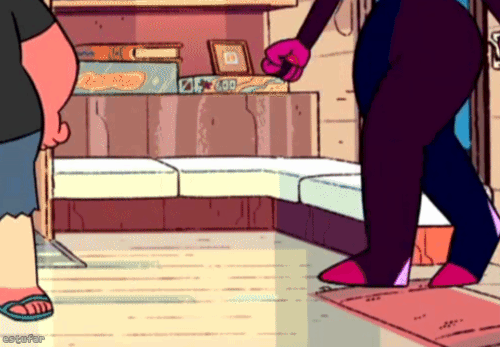
Amethyst - Afro Latina, Cis Female, and 4 ft tall(dwarfism). Her pronouns are she/her. Was diagnosed with dwarfism and ADHD. Though does suffer from self esteem issues. While she probably does need to use a wheelchair she chooses to not use any aid for she is fine without it. She also has a cleft lip. She is Peridot's best friend while also being a fellow drop out. At the start of "My Bizarre Roommate" she is 22 years old, making her the youngest despite hanging out with Pearl and Garnet.

Pearl - Filipina, Cis Female, and is 6'8(though ironically way lighter than Lapis). Her pronouns are she/her. Has albinism so her hair is naturally a reddish color and her eyes are lighter than usual. She has undiagnosed Autism due to her being born in the older days(basically born in the early 70's). At the time of "My Bizarre Roommate" she is 49 years old. And yes, Rose was her ex
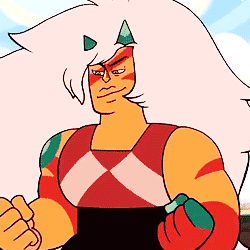
Jasper - Mixed Race(Ausssie and African American) though raised Southern, Cis Female, and is 7 ft tall. Her pronouns as she/her though she's kind of against pronouns. She is also Lapis' Ex. Has vitilgo and scars but it's hard to tell which is which. She has multiple undiagnosed mental illnesses that she really needs to check out. She is 26 at the start of "My Bizarre Roommate"

Garnet - African British, Cis Female, and is also 7 ft tall. Garnet's pronouns are she/her. Has diagnosed autism but she masks really well though going to well with it to the point of being stoic. Her mothers, Ruby and Sapphire, are both biological as one of them is an elder trans person. During the time of "My Bizarre Roommate" she is 30 years old.

Bismuth - African American, Trans Woman, and is 6'11. Her pronouns are she/her. She has undiagnosed Autism and her hyperfixation is welding tools and history of weapons. She is also the wife of Pearl during My Bizarre Roommate as her age is 51.
#My Bizarre Roommate#Human AU#Steven Universe Human AU#Rose is still dead#Steven is kind of the same without all the gem magic#Lapidot Story#Lapidot Fanfic
6 notes
·
View notes
Text
Welcome to the blog! Here you can ask one of my many ocs questions about themselves! You can also ask the other characters in the series that ic is based in questions too! Keep in mind this isn't a blog to just ask about the main characters this is a fun way to get to know each of my ocs! Now then! Let's meet the characters!
Disclaimer:Do not make fun of any aspects of me or my characters. You will be promptly blocked.
Also yes I know most of these share a first and maybe even last name. It's intentional. Most of my ocs I view as like different au versions of the character. You don't like it? Then as Glam once said "You can leave out that door!"


First off we got Blake Dílseacht! My oc for Metal Family! Any responses from this oc will be tagged with #MetalFamilyBlake
They are 16 and live in a tree house in the woods after becoming emancipated from their parents. They play ukulele in memory of their elder brother. They became friends with Dee after bumping into him at school and he complimented their music choice.
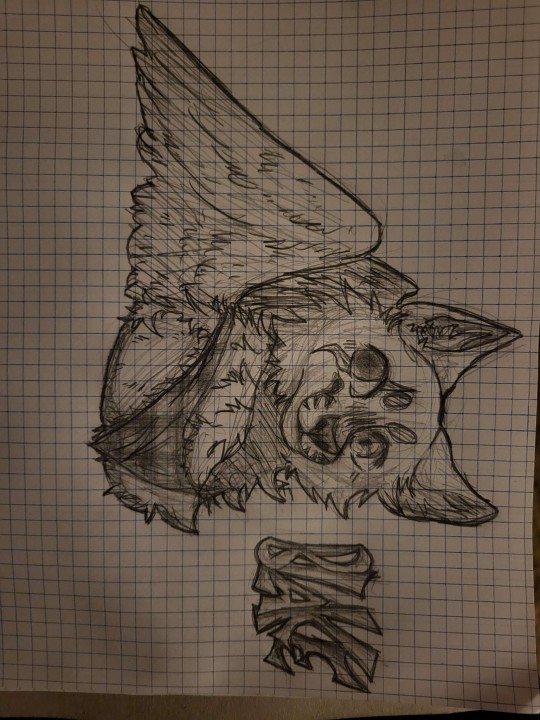
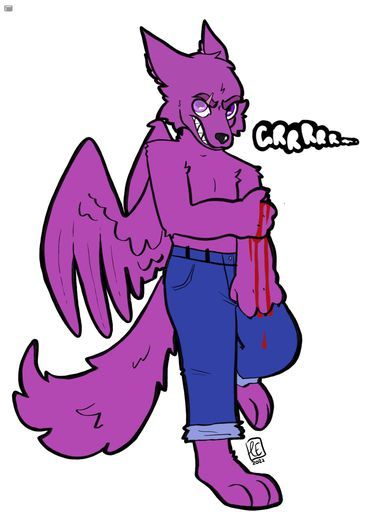
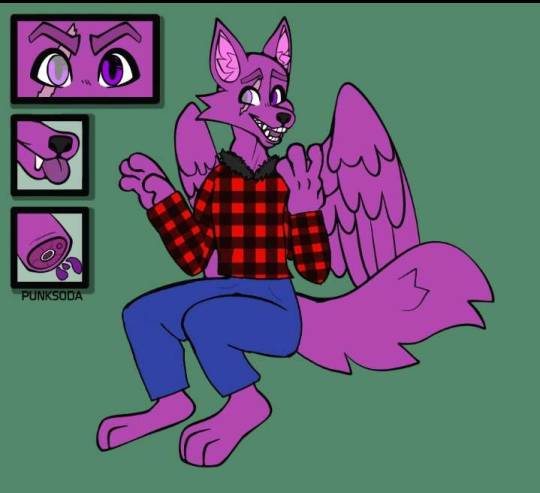
Next my main oc and DSMP oc Blake Luan Minecraft! Their a pacifist who was adopted by philza after they mysteriously showed up in the snow outside his house when they were 5. He wouldn't have seen them if it wasn't for Wilbur pointing them out. If you wanna learn more about them by reading check out my ao3 story "Found Flock". Responses for this character will be marked #DsmpBlake
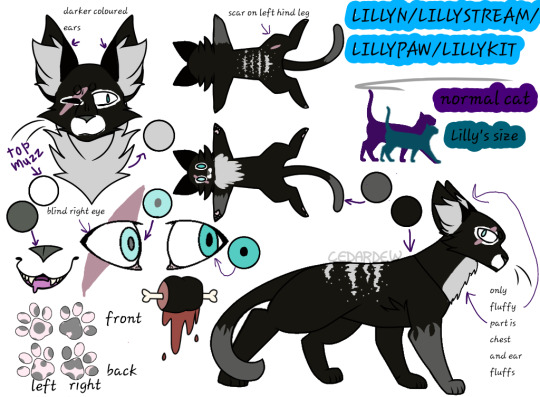
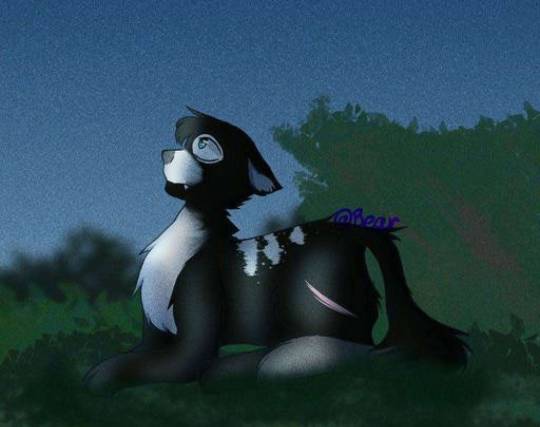
Next we have my warriors oc Lillystream! Life was never easy for this molly. After having to leave home at only 4 moons old thanks to her father who killed her siblings and mom so he could run off with a molly from a nearby clan he blinded her as she just barely managed to escape. She has a long journey ahead of her. One that hold great change not just for her but for those she meets along the way.
Responses for Lilly will be marked with #lillystream
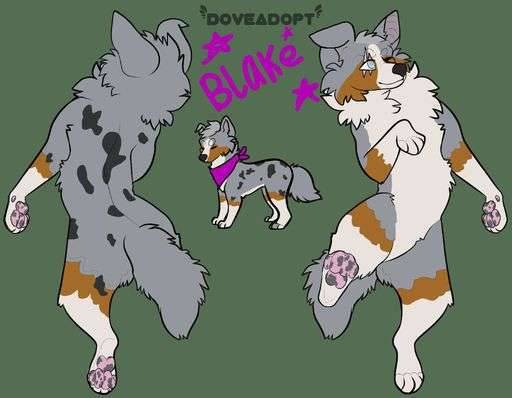
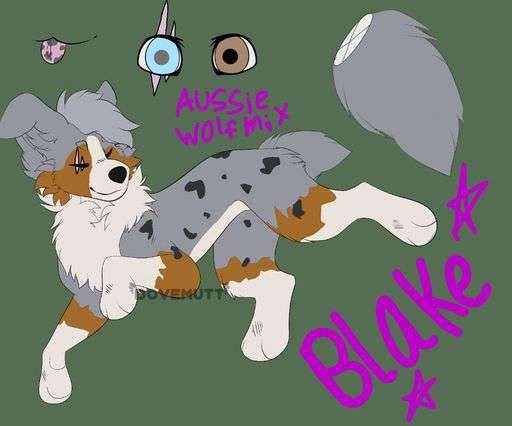

Then theirs my survivors oc Blake. Their an ausssie shepered mixed with a wolf. They live on a farm their humans left behind. They allow animals passing through to hunt the rabbits mice and other animals that run about. Just so long as they dont take more then they need.
Responses for them will be marked #SurvivorsBlake
(Continued in next post found here )
#ask blog#my ocs#ocs#multifandom account#metal family#metal family oc#dsmp#dream smp#dsmp oc#survivors#survivors oc#MetalFamilyBlake#Lillystream#DsmpBlake#SurvivorsBlake#warrior cats oc#warrior cats
2 notes
·
View notes
Text
also AUSSSIE DEH IN SYDNEY???????
im scared i thought i was free of deh
2 notes
·
View notes
Note
omgggg tu aussi parle le françaissss??? moi ausssi bestieee 🤭
jumelles!!!!!!
1 note
·
View note
Note
How about aussie open for the bingo?

idk why but ausssie open as a romantic ship has never been for me,, and every draft i have for stuff involving them they are close friends 😭
don’t worry i didn’t forget about this i just took a mini break from socmed until earlier🫶
1 note
·
View note
Text
LÉGENDES DU JAZZ
JEAN-LUC PONTY, LE CHANGEMENT DANS LA CONTINUITÉ
"Because I don't reject the past, my changes in style have not been zigzags. I just wanted to keep this feeling of fresh adventure in my work and not be stuck in styles, whether it's jazz or rock or anything else."
- Jean-Luc Ponty
Né le 29 septembre 1942 à Avranches, en Normandie, en France, Jean-Luc Ponty est issu d’une famille de musiciens classiques. Le père de Ponty était professeur de violon, et sa mère enseignait le piano. Ponty avait quitté l’école à l’âge de treize ans pour suivre des cours privés de violon.
À l’âge de seize ans, Ponty avait été admis au Conservatoire National Supérieur de Musique de Paris. Il avait obtenu son diplôme deux ans plus tard après avoir remporté le premier prix. C’est durant ses études au conservatoire que Ponty avait découvert le jazz. Il avait alors commencé à assister à des concerts de musiciens américains en exil comme Kenny Clarke, Bud Powell et Dexter Gordon dans les clubs de Paris. Après avoir décroché son diplôme, Ponty avait été recruté par les Concerts Lamoureux pour lesquels il avait joué de 1960 à 1963.
Pour oublier le stress causé par ses études de violon, Ponty avait commencé à apprendre la clarinette avec son père. À l’âge de dix-sept ans, Ponty avait appris qu’un groupe de jazz de Paris avait besoin d’un clarinettiste. Même s’il avait réussi l’audition et avait profité de son nouveau poste pours se familiariser davantage avec le jazz, Ponty était toujours aussi passionné par la musique classique. Après avoir découvert Miles Davis et John Coltrane, Ponty avait ausssi brièvement joué du saxophone ténor. Ponty avait éventuellement adopté le violon comme instrument de jazz parce que c’était l’instrument qu’il maîtrisait le mieux sur le plan technique. Ponty avait ajouté qu’il n’avait pas vraiment la patience d’apprendre les autres instruments qui faisaient habituellement partie de l’arsenal des groupes de jazz.
À l’époque, Ponty vivait une sorte de double vie, pratiquant et se produisant avec l’orchestre le jour tout en jouant dans les clubs de jazz autour de Paris jusqu’aux petites heures du matin.
Mais avec les années, Ponty était devenu de plus en plus débordé et avait dû faire un choix. En 1963, Ponty avait finalement décidé d’abandonner la musique classique pour devenir musicien de jazz à plein temps. Comme il l’avait expliqué plus tard: "Naturally, I had to make a choice, so I took a chance with jazz.’’
Après s’être produit au Festival de jazz d’Antibes, le principal festival de jazz européen de l’époque, Ponty s’était vu offrir de nombreux engagements ainsi qu’un contrat d’enregistrement.
DÉBUTS DE CARRIÈRE
Après un concert avec les Concerts Lamoureux, Ponty s’était retrouvé dans un club local avec seulement son violon et son tuxedo. Quatre ans plus tard, Ponty était devenu un des violonistes les plus dominants du jazz aux côtés de sommités comme Stuff Smith et Stéphane Grappelli. Comme l’écrivait le critique Joachim Berendt: "Since Ponty, the jazz violin has been a different instrument".
Faire du violon un véritable instrument de jazz avait représenté un véritable défi. Avec son puissant vibrato, un phrasé très marqué par le bebop et un style très énergique particulièrement influencé par les cuivres, Ponty s’était rapidement forgé sa propre personnalité musicale. Les critiques avaient sans doute fait l’un des meilleurs compliments qu’on pouvait adresser à Ponty lorsqu’ils avaient déclaré qu’il était le premier violoniste de jazz à être devenu aussi excitant qu’un saxophoniste.
En 1964, à l’âge de seulement vingt-deux ans, Ponty avait publié un premier album comme leader intitulé Jazz Long Playing. Il s’était aussi produit à Bâle, en Suisse, avec les violonistes Stuff Smith (un pionnier du violon électrique), Stéphane Grappelli et Svend Asmussen. Le concert avait été publié en 1966 sur l’album Violin Summit. De 1964 à 1967, Ponty s’était surtout produit en Europe, plus particulièrement avec le pianiste Eddy Louiss et le batteur Daniel Humair.
En 1967, le pianiste John Lewis du Modern Jazz Quartet avait invité Ponty à se produire au Festival de jazz de Monterey en Californie, ce qui lui avait permis de signer un contrat avec la compagnie de disques World Pacific avec qui il avait enregistré les albums Electric Connection (1969) avec le big band du trompettiste Gerald Wilson et Jean-Luc Ponty Experience with the George Duke Trio (1969).
Toujours en 1967, Ponty avait publié Sunday Walk, sa première collaboration avec le contrebassiste danois Niels-Henning Ørsted Pedersen. Le groupe était aussi formé de Wolfgang Dauner au piano et de Daniel Humair à la batterie.
Ponty avait fondé le groupe Jean-Luc Ponty Experience en 1970. Le groupe mettait particulièrement l’accent sur l’improvisation, mais à l’époque, Ponty était encore trop tributaire de sa formation classique et n’était pas encore très à l’aise avec le manque de structure propre au jazz. Le groupe avait finalement été démantelé au bout de deux ans.
Après avoir découvert Ponty, le guitariste Frank Zappa l’avait invité à se joindre à son groupe Mothers of Invention. En 1969, Zappa avait écrit la musique de l’album King Kong: Jean-Luc Ponty Plays the Music of Frank Zappa (1970). Ponty avait fait partie du groupe de Zappa jusqu’en 1975. Mais même si Ponty avait participé à quatre tournées avec le groupe de Zappa et avait travaillé avec d’autres musiciens comme Elton John qui l’avait invité en 1972 à collaborer à son album Honky Chateau, il n’avait pas encore trouvé sa propre personnalité musicale.
Ponty était en train d’écrire et d’arranger de la musique pour les besoins de son futur groupe lorsque le guitariste John McLaughlin lui avait demandé de se joindre au Mahavishnu Orchestra. Ponty avait fait partie du groupe durant deux ans avant que des querelles légales et personnelles ne mettent fin à cette collaboration. Dans le cadre de son séjour avec le groupe, Ponty avait quand même eu le temps d’enregistrer deux albums: Apocalypse et Visions of the Emerald Beyond, tous deux publiés en 1974. Ponty avait également participé à de nombreuses tournées avec le groupe. Relatant cette période de sa carrière, Ponty avait commenté:
‘’I have had a long career with many albums, so I have tried a few different approaches. When I really started producing music, being totally responsible for my albums in '75, this was my first big opportunity to come up with my own concept. Therefore, my first album on Atlantic allowed me to start composing, arranging and producing my own music effectively. Prior to that, I was more like any other jazz musician. I was more of a performer too, having been playing with Zappa and McLaughlin. I started out with adding as much as I could in terms of instrumentation and layers in the studio. I quickly realized there was a limit and it was very difficult to handle live. Sounds cannot be added forever because you end up having sounds within the same audio waves. Somehow, the harmonies start melting into each other. By '78 with Cosmic Messenger, I started to cut down on the number of instruments and layers I used because I realized there was only so far I could go with that.’’
Dan les années 1970 et 1980, Ponty avait fait de nombreuses tournées autour du monde et enregistré douze albums qui s’étaient hissés dans les cinq premières positions du magazine Billboard avec des millions de copies vendues. Les premiers albums de Ponty pour Atlantic, comme Aurora et Imaginary Voyage (1976), l’avaient établi comme un principaux leaders du jazz-fusion. Ponty s’était de nouveau classé dans le Top 40 avec les albums Enigmatic Ocean (1977) et Cosmic Messenger (1978).
En 1980, Ponty avait démantelé son groupe en déclarant qu’il avait besoin de vacances. Il n’avait fallu que deux ans à Ponty pour organiser un nouveau groupe et enregistrer l’album Mystical Adventures. Caractérisé par un son moins agressif, l’album avait été louangé pour son utilisation intelligente des synthétiseurs. En 1984, le réalisateutr Louis Schwarzberg avait tourné un vidéo sur la composition "Individual Choice".
Ponty s’était finalement installé à Los Angeles en 1983 avec son épouse et ses deux filles. Ponty avait alors formé son propre groupe, mais l’alignement de la formation, qui comprenait un guitariste, un bassiste, un claviériste et un percussionniste, avait fait l’objet de nombreux changements de personnel. Principal soliste du groupe, Ponty était aussi le principal compositeur et arrangeur de la formation. Dès le début de sa carrière, Ponty s’était produit régulièrement dans les festivals de jazz. Très populaire, il était sur la route six mois sur douze.
À la fin des années 1980, Ponty avait enregistré les albums The Gift of Time (1987) et Storytelling (1989) pour les disques Columbia. Après la publication de l’album The Gift of Time, Ponty avait fait une importante tournée en Amérique du Nord, en Amérique du Sud et en Europe. Il avait aussi fait des apparitions comme musicien classique avec les orchestres symphoniques de Montreal, Toronto, Oklahoma City et Tokyo. Il s’était également produit avec le Pittsburgh New Music Ensemble et le Radio City Orchestra de New York. L’album Storytelling publié en 1989 reflétait également la formation classique de Ponty, qui se produisait au violon acoustique pour la première fois depuis plusieurs années.
ÉVOLUTION RÉCENTE
En 1991, Ponty avait enregistré Tchokola, un album qui combinait les violons acoustiques et électriques aux sons polyrythmiques de l’Afrique de l’Ouest. Le critique John Diliberto avait écrit dans le magazine Down Beat que plutôt que d’écrire de la musique typiquement africaine, Ponty ‘’decided to play the music itself, using compositions and forms from Senegal, Mali, Cameroon, and finding a way to fit in with his violin." Ponty avait d’ailleurs confié à Diliberto que "some of [the] rhythms [on the album] were the most difficult I had to deal with in my life.’’ L’album avait été décrit par Tom Cheney du magazine Musician comme "a graceful, sensitive and rootsy foray into world musicianship." Ponty, toujours aussi fasciné par l’expérimentation, avait déclaré à Zan Stewart of the Los Angeles Times: "Because I don't reject the past, my changes in style have not been zigzags. I just wanted to keep this feeling of fresh adventure in my work and not be stuck in styles, whether it's jazz or rock or anything else."
Durant cette période, Ponty avait également joué durant deux mois aux États-Unis et au Canada avec des musicienss africains en exil qu’il avait rencontrés à Paris. Ponty avait d’ailleurs décrit sa collaboration avec des musiciens africains comme particulièrement stimulante. Il précisait:
‘’It was a bit accidental. When I came through Paris in 1988, I was on tour with my American band in Europe performing at festivals. While in Paris, I was made aware of the presence of musicians from West Africa. In 1988, it was still a fresh situation in Paris, which started in the mid-'80s when some of the most talented musicians from the ex-French colonies moved to Paris because of the language and affinity of schooling there, and also because some of the French music producers discovered some of them in West Africa and brought them over. So, I was intrigued, because I had listened to African music in my youth, but it was more tribal music. I purchased a few recent albums and they were mostly singers. I was curious to meet instrumentalists, since they were using modern instruments such as electric guitar, bass and so on. I was intrigued to see if I could improvise with these musicians, so I came back to Paris two years after that tour in 1990. I grouped a few of them and we started jamming together and the experience was very positive and exciting.’’
Très ouvert aux musiques du monde, Ponty avait ajouté:
‘’I brought the idea of this project to my label at the time which was Sony/Epic. They loved it and that's how we went ahead with it. I came back to Paris in 1991 to record with these musicians. I was ready to go to Africa if I needed to because I wanted to record a variety of styles from different countries, but the musicians told me that I did not have to because all the best players were already in Paris. So, for the first time in 20 years, I was working in Paris in a recording studio and reconnecting with the city's music business. It was exciting to play with these musicians and I kept two of them in my group—Guy N'Sangue on bass and Moustapha Cisse on percussion. Both were on the 1991 project.’’
Mais Ponty ne désirait pas être confiné à la musique africaine et avait décidé d’entreprendre un nouveau changement de cap. Il expliquait: ‘’I wanted to move forward from there. I wasn't going to dedicate my whole life to African music. That would be silly, not being African myself. So, I wanted to come back to my own music, but incorporating this new experience, especially on the rhythm side. So, my next studio album on Atlantic was No Absolute Time in 1993 and was a return to my compositional style, but still incorporated the West African rhythm section with several American musicians based in Paris.’’
En 1993, Ponty était retourné avec les disqies Atlantic et avait enregistré l’album No Absolute Time. Deux ans plus tard, Ponty s’était joint au guitariste Al Di Meola et au contrebassiste Stanley Clarke pour enregistrer The Rite of Strings, un album acoustique enregistré en concert. Le trio avait fait la promotion de l’album dans le cadre d’une tournée de six mois en Amérique du Nord, en Amérique du Sud et en Europe. Ponty avait réuni son groupe américain en 1996 après la publication de l’album double Le Voyage: The Jean-Luc Ponty Anthology. Un des concerts de la tournée avait été enregisstré à Detroit le 29 juin 1996 et avait été publié en octobre suivant sous le titre de Live at Chene Park.
1996 était aussi l’année où Ponty et son épouse avaient décidé de retourner en France. Il expliquait: ‘’My wife and I decided we wanted to have a big change of life and move closer to our roots and relatives, so we moved back to Paris. We now live there and in New York, our new U.S. base, part time. We had been living in Los Angeles for the previous 23 years. The move stirred a lot of doubts and emotions. Both geographically and artistically, I felt it was time to come back home. Therefore, I wanted to create a musical environment for my violin playing that involves using the instrument in a more mature way.’’
En 1997, Ponty avait de nouveau réuni son groupe de musiciens américains et africains pour continuer d’explorer le jazz-fusion qu’il avait commencé à expérimenter en 1991. La tournée de trois mois avait conduit le groupe des îles Hawaïï en Pologne, en passant par l’Amérique du Nord et l’Europe. Ponty avait également joué en duo avec le contrebassiste tchèque Miroslav Vitous en décembre 1999. Ponty, qui adorait se produire en concert, avait exprimé ainsi sa fascination pour la scène:
‘’I never quit performing live because you don't necessarily have to come up with a new way of doing things when you do that. You have that experience of connecting with the audience and that's what makes performing worth it. There are many people who first heard me on the albums but didn't always understand what I was trying to say through my music. Once they saw me live, they felt they could understand everything. So, the physical experience of being a performer, experimenting with the music helps. So, since 1996, I never stopped, though I wasn't sure I would record again.’’
En 2000, avec des millions de disques vendus et plus de vingt-cinq album à son actif, Ponty était parvenu à la croisée de chemins. Ponty avait amorcé le nouveau millénaire en fondant sa propre compagnie de disques, J.L.P. Productions, et en lançant Life Enigma (2001), son premier album studio en cinq ans. Dans le cadre de cet album, Ponty avait fait un retour au style et à l’approche de composition qui avait fait son succès dans les années 1970 avec des albums comme Enigmatic Ocean (1977) et Cosmic Messenger (1978). Ponty avait même joué de tous les instruments sur certaines pièces.
Ponty explique pourquoi il avait ressenti le besoin de retourner vers ses racines: ‘’I wanted to go back to my usual style which I started to develop in the '70s and through the '80s. During the '90s, I didn't change as a violinist, but I ventured into projects that were really taking me far away from my own style of music. The first project to do that was the collaboration with the West African artists. Then there was the acoustic trio with Stanley Clarke and Al Di Meola, which was a different type of challenge.’’ Comme Ponty l’avait précisé lui-même, l’album Life Enigma avait représenté un tournant dans sa carrière:
‘’With Life Enigma, I wasn't even sure I wanted to record another album with so many behind me. One reason I decided to go ahead with it was because my fans via my website were requesting a new CD. I also realized that through the challenging projects I did through the '90s, I came up with a few little, new ways to play the violin. There are technical things in the way I use the sounds that I've never done before, such as the way I treat the sound of the instrument. However, I wasn't trying to prove anything with the new album. Therefore, I wanted the music to be as simple as possible and come straight from the heart. I only included the necessary colors that would add up to the mood of the particular pieces.’’
Mais le fait de retourner vers la formule qui lui avait permis de connaître du succès ne signifiait pas pour autant que Ponty avait l’intention de reproduire ses anciens albums note pour note. Il poursuivait:
‘’Since the '80s, I have come up with a new instrument which gives me a purer sound that's strangely closer to what I was doing in the '60s when I played jazz with straight, amplified violin. So, I'm using less electronics overall, and when I do use them, I want them to be new and up-to-date, rather than sounding like what I did in the '70s and '80s.
The focus is on the writing angle—coming back to my melodic and harmonic approaches, but I was not into nostalgia either, something that was out of the question. It's more about the type of moods I create, so I started creating some which were strongly related to my personality as an individual. I wanted to connect back with that, but I was still hoping to do a production that would sound more modern. That's why it took me so long to make an album. I wanted to make sure I was going to come up with something fresh. I thought it was unnecessary to add one more album to my collection if I was to do exactly what I did in the '70s.’’
Décrivant sa nouvelle approche musicale, Ponty avait commenté:
‘’It's lyrical, with well-defined melodies. I started as a rather sophisticated musician when I started playing jazz. It very quickly became modern and avant-garde jazz, which then quickly became esoteric—I'm talking about the late '60s here. I thought I was going in the wrong direction. I wanted to express music in a more direct and simpler way—a more lyrical way with some romantic melodies and at times, harmonies, that would be influenced by my classical European background. It's hard to describe because it's not something that's intellectually defined.’’
Ponty se considérait d’ailleurs particulièrement choyé d’avoir fait ses débuts à une époque où les artistes avaient encore un certain contrôle sur leur produit et où le mercantilisme des compagnies de disques n’avait pas encore commencé à museler la créativité des musiciens. Il expliquait:
‘’I am lucky to have lived during the '60s and '70s during which artists were leading the way and people in the music business such as record companies and radio programmers would follow. It was a time of wide experimentation and the more you dared explore and be adventurous, and came up with something new, the more you had a chance to be appreciated. It was a social state of mind as well. The audience was ready for that. They were looking for new things. It has become a lot more conformist nowadays. It's a big industry and the number one goal is to satisfy the shareholders of these monster companies, though there are still a few people with a vision. It is a very difficult time.’’
En janvier 2000, Ponty avait continué de diversifier ses intérêts musicaux en participant à l’enregistrement de l’album Esperanto de Lalo Schifrin. En juin 2001, Ponty avait travaillé en duo avec le violoniste russe Vadim Repin et avec la violoniste américaine Regina Carter dans le cadre du Film Music Festival en Pologne.
Le 21 septembre 2001, Ponty s’était produit avec son groupe dans sa ville natale d’Avranches en Normandie qui l’avait honoré dans le cadre d’une cérémonie organisée à l’hôtel de ville. En mai 2001, Ponty avait enregistré un concert avec les mêmes musiciens à la maison d’opéra de Dresden, en Allemagne. L’enregistrement avait été publié en juillet 2002 dans le cadre de l’album Live at Semper Opera.
En janvier 2003, Ponty avait fait une tournée en Inde pour la première fois de sa carrière et avait présenté sept concerts dans six villes majeures dans le cadre du Global Music Festival organisé par le violoniste indien L. Subramaniam. De juin à octobre 2004, Ponty avait participé à une tournée-réunion au Canada et aux États-Unis avec Stanley Clarke et Al Di Meola. En 2005, Ponty avait avait fait une tournée en trio avec Stanley Clarke et le banjoïste Béla Fleck. L’année suivante, Ponty avait réuni son groupe et s’était produit aux États-Unis, au Chili, au Vénézuéla en Europe, en Russie, au Moyen-Orient et en Asie. En 2007, Ponty avait enregistré un album studio intitulé The Atacama Experience avec les guitaristes Allan Holdsworth et Philip Catherine.
En 2011, Ponty avait été invité par Chick Corea à se joindre au groupe Return to Forever dans le cadre d’une tournée-réunion. Baptisé Return to Forever IV, le groupe en était à la quatrième édition de sa longue histoire. Ponty avait enregistré pour la première fois avec Corea en 1976 dans le cadre de l’album My Spanish Heart.
En avril 2012, Ponty avait joué avec un trio acoustique formé de Stanley Clarke et du guitariste gitan Bireli Lagrène dans le cadre d’une seconde série de concerts au Théâtre Chatelet de Paris qui visait à commémorer ses cinquante ans de carrière. La première série mettait en vedette Ponty avec un orchestre à cordes. En 2014, Ponty avait également enregistré l’album D-Stringz avec Clarke et Lagrène. En septembre 2014, Ponty avait co-fondé le Anderson Ponty Band avec Jon Anderson, l’ancien chanteur du groupe Yes.
Décrivant son évolution comme musicien et compositeur au début des années 2000, Ponty avait déclaré:
‘’In the '70s and '80s, I said I was going to compose music with particular harmonic elements and let the inspiration come. It was more through personal intuition that I developed a layered sound that became pretty personal. I guess my goal or wish—even if it was a bit subconscious—in the '70s was to combine all the elements of music I had personally experienced. I started with classical music, then it was jazz for 10 years, and then I met some progressive rock musicians. So, each time, I was discovering new ways of expressing music which I really enjoyed. During the progressive rock stage, I started experimenting with the tools of the day which were new electric instruments, electronics, synthesizers and so forth. But I wanted to keep improvising like I had learned to do in jazz. And from classical music, I wanted to incorporate more pictorial, atmospheric elements which could be achieved by painting with sound colors. I also wanted strong support like I would have with a symphony orchestra, but since I could not afford to have one, I used different layers of synthesizer sounds. I didn't want to reproduce a symphony orchestra, but I thought it was interesting to use new sounds from the synthesizers in an interesting and satisfying way.
I used synthesizers to have a rich support and rich textures. But in the '90s, I completely went away from that. I was playing with the African musicians as a violinist. I did not want to be too involved as a composer. They forced me into composing and directed me because they wanted me to collaborate with them in terms of writing. Of course, they had the experience of their own music. I didn't, but I was able to relate to some of the rhythms in order to help with some of the melodic elements. But in the end, it wasn't really sounding like my music anymore. Same with Stanley Clarke and Al Di Meola. I was supposed to share in the writing. I brought three compositions in, as each of the other members did. But the pieces had to be adapted to the acoustic trio, so it was a different ballgame altogether. So, through the '90s, with these two experiences and projects, I was an improviser and interpreter on violin. With my own music, I'm a lot more involved as a composer. In fact, Life Enigma has the violin featured more prominently than any other album I've done. On my past albums, I was using the violin as only one of the voices in my orchestration, along with guitar and keyboards.’’
Lorsqu’on avait demandé à Ponty s‘il avait l’intention de prendre sa retraite un jour, il avait répondu:
‘’I don't think I can retire from the stage. It'd be hard for me to do without it. [laughs] So, I don’t think I can retire really, but maybe from recording. Again, it would be because I feel I have not much to bring anymore or I am doing the same thing over and over again. Also, physically, there's a limit to playing violin. I still have a few years ahead of me if everything goes well and I stay healthy. Stephane Grappelli was a phenomenon because he went on playing almost until the last minute when he was 90 years old. He was playing sitting down and the music he was performing was very mellow as well. I could not go on playing my style of music until I am 90, that is for sure. I would have to switch to a less energetic type of show onstage. But comparing myself to classical violinists, they have to stop when they're between 70 to 75 years old. That would give me another 15 years max to play the violin correctly. So, I am not considering retiring right now, I can tell you that. And since I have started my label, I really have an outlet to release all the fun projects I can come up with.’’
Lorsqu’on avait demandé à Ponty s’il croyait avoir obtenu la reconnaissance qu’il méritait comme musicien et compositeur, il avait tenu à préciser:
‘’I should not complain because I've received a lot of rewards throughout my life, but it's not constant. There are ups and downs. Lately, there were some downs. I feel I've been extremely lucky as instrumentalists go to have the life and career I've had so far. If you compare yourself to the big stars, it's never enough, but when I consider where I come from and my instrument, what I have lived is like a dream. I never expected to have that much success. I was not even looking for it {...}. So, I've lived some fantastic years and I still do. I still have great moments. The only difference now is maybe, yes, I could say I don't get enough recognition. And not just me, but just musicians in general who deserve more recognition than they get.’’
Compositeur et musicien éclectique, Ponty est à l’aise dans plusieurs styles musicaux allant du swing au bebop, en passant par le jazz modal, le free jazz et le jazz-fusion. Propriétaire plusieurs violons, Ponty possède notamment deux violons Barcus-Berry qui, même s’ils sont peints en bleu et sont équipés de différents éléments électroniques, sont fabriqués en bois et peuvent être utilisés de façon acoustique. Ponty joue aussi du violectra, un violon baryton dont les cordes sont règlées un octave plus bas que les vilons standards. Ponty possède également un violon Zeta de bois qui est équipé de micros de cristal. De 1971 à 1979, Ponty a remporté plusieurs sondages des critiques et des lecteurs du magazine Down Beat comme meilleur violoniste. Il a aussi influencé de nombreux violonistes, dont son compatriote français Didier Lockwood.
Jean-Luc Ponty est marié et est le père de deux filles. Une de ses filles, Clara, est pianiste et compositrice. Ponty a collaboré avec Clara dans le cadre de plusieurs projets, dont son troisième album Mirror of Truth (2004).
©-2024, tous droits réservéss, Les Productions de l’Imaginaire historique
SOURCES:
‘’Jean-Luc Ponty.’’ Wikipedia, 2023.
‘’Jean-Luc Ponty.’’ All About Jazz, 2023.
‘’Jean-Luc Ponty Biography.’’ Net Industries, 2023.
0 notes
Text
Gênance.
Chloe est allée passer la journée à waer water à Bruxelles avec Eugenie noé et Noélyse. En rentrant à 22:30 à la maison ils sont passés prendre un domac, pour le manger chez nous. On en vient à parler du gossip sur Elliot pdt les vacances à la montagne etc ça part sur le cul, et toutes sortent d’anecdote. Et la chloe sort « la fois où Arthur lui avait fait la remarque après avoir passer la nuit chez maman. » genance. En ajoutant tkt pas nous on fait plus rien. Gêne ++.
Ça me choque. J’aime pas ça du tout
Bref, dimanche on part à pornichet pour 5 nuits de vacances. Entre deux histoires de donner des nouvelles, on est entrain de voir avec ma famille pour fêter mes 30ans à cussy et à cherbourg , dur à gérer quand papa ne veut pas venir à cussy et que le resto si y’a Didier ba on se tape Isabelle. Il me tanne ausssi pour que mes grand-parent soient présent, mais non toujours pas en faite. Sinon depuis que j’ai mon statut free-lance , j’ai déjà gagner deux salaires , en 4 mois d’activité j’ai facturée 7k. Ça commence bien :) . Par contre aucune nouvelle de ma collègue victoria, qui m’as engueuler la dernière fois pck j’avais fait la morte pdt 10jours (maladie + emploi du temps incompatible avec le sien pour se joindre ) bref je suis sûr qu’elle boude, mais en même temps elle est en vacance et moi aussi. A deux doit de se barrer j’ai envie de dire.
Apparement Chloé prévois un goûter d’anniversaire pour moi avec sa famille, on verra bien.
Pour l’instant on fait toujours semblant de rien, on rie et on profite de notre terrasse, avec de très grande œillère .
Eugenie va peut être me tatouer en septembre l’autre hanche. Après ça j’aurais plus rien à perdre. Sauf les chats .
Bref on verra bien
Kiss
16/08/24 00:06
0 notes
Note
I never talked about this but every time I think about like what would hachi sound like I always think she will have a slight Aussie accent that people don’t really notice until she gets upset, or when she swears
the only reason why I give her a ausssie accent is because blue ringed octopuses are native to Australia
Aussie accent moment ‼️‼️
1 note
·
View note
Text
CRÊPE AU CHOCOLAT AUX FRAISES
Ingrédients: ¾ tasse de lait ¼ tasse d’eau 2 œufs 1 tasse de farine de blé tout usage 2 cuillères à soupe de cacao en poudre 2 cuillères à soupe de beurre fondu ¼ tasse de sucre blanc Lire ausssi: Recette de crêpes au fromage sans gluten de moins de 15 minutes Pour le fourrage: 2 tasses de fraises tranchées Sirop de chocolat ou de fraise Préparation: Dans le bol d’un mixeur, versez le lait,…

View On WordPress
0 notes
Note
I keep forgetting you’re Aussie. Aussie club!!! :D
Heck yeah Ausssie club!!!

1 note
·
View note
Text
a quoi bon remuer le passé ? que les descendants de victime cessent de se victimiser, comme si le crime durait encore. Quand aux autres , que leurs aieux en soient coupables ou pas, qu'ils cessent donc d'avoir mauvaise conscience en cherchant à expier leur privilège.
Ces injonction reposent sur une double méprise. D'une part, l'antiracisme n'est ni une victimisation ni une culpabilisation, mais une prise de conscience. D'autres part, si la colonisation a pris fin dans les structures étatique, la colonialité n'a disparue ni dans les sociétés ni dans les mentalité ni dans les rapports économique. Non seulement elle perdure, sous des formes plus ou moins furtives mais elle se traduit ausssi par des système de domination et de discrimination.
0 notes